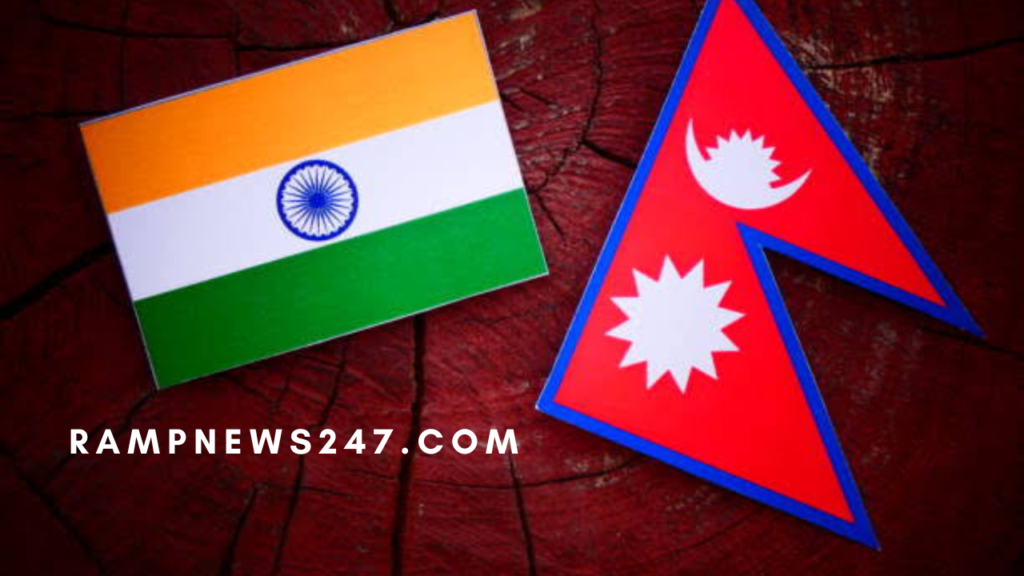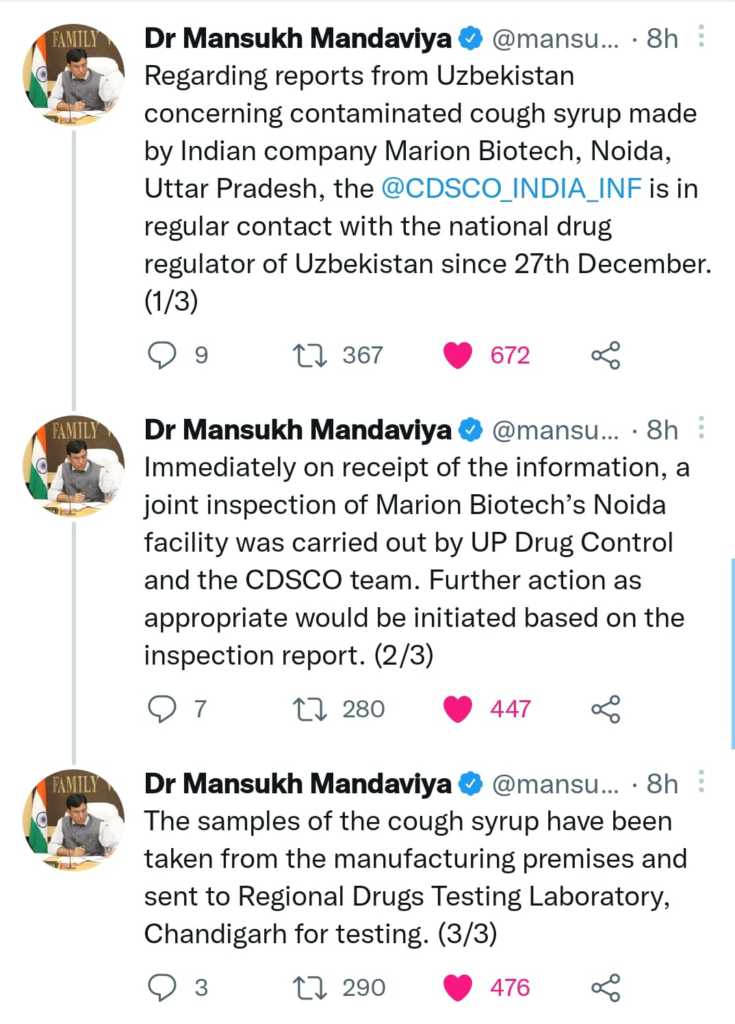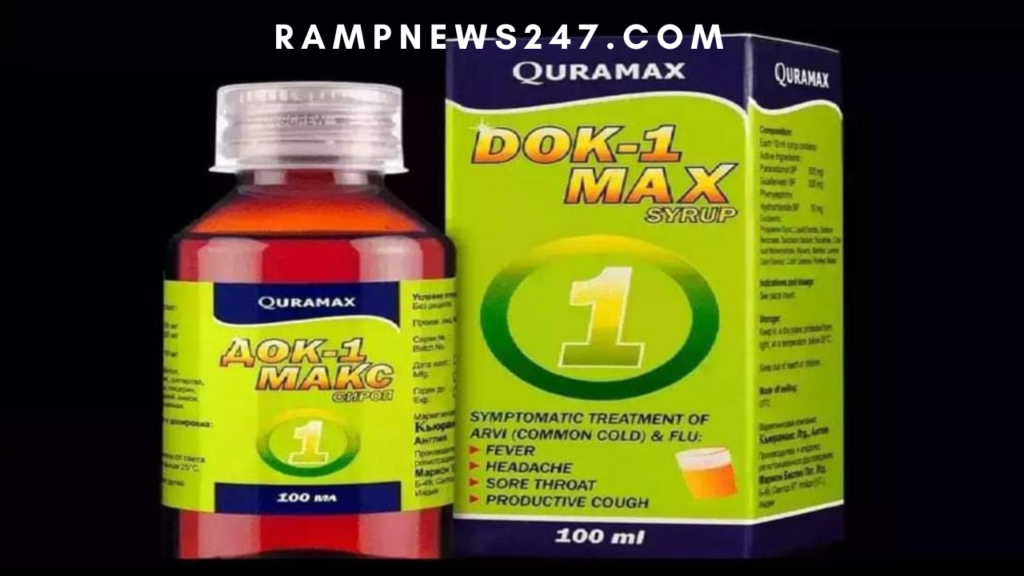- Uzbekistan Children Death: 18 children died after taking Indian cough syrup in Uzbekistan
- Which company has made the syrup about which the Ministry of Health of Uzbekistan is claiming that children have died because of India’s syrup?
- What did the health ministry of India say about the death of 18 children in Uzbekistan?
- Nepal had also banned 16 companies of India some time back.
Uzbekistan Children Death: 18 children died after taking Indian cough syrup in Uzbekistan
Uzbekistan Children Death: The news of the death of 18 children in Uzbekistan by drinking Indian cough syrup raises questions on Indian pharmaceutical companies, as well as the Ministry of Health of Uzbekistan has claimed that 18 children died in Uzbekistan only by drinking Indian cough syrup. The child has died. Uzbekistan is an Islamic country situated in Central Asia. Uzbekistan Ministry of Health has claimed, this claim was sent to laboratory for investigation, it was found that the syrup is made from bad ethylene glycol.
Which company has made the syrup about which the Ministry of Health of Uzbekistan is claiming that children have died because of India’s syrup?
Uzbekistan: Please tell that this syrup is “DOK-1 MAX” syrup, this cough syrup is made by Indian pharmaceutical company Marion Biotech Limited. A few days back also such news had come from Gambia country, in which it was claimed that 60 children died after drinking cough syrup made in India. According to the news published in India (WHO), the World Health Ministry is talking to Uzbekistan Health Ministry. “DOK-1 MAX” Noida’s manufacturing company Marion Biotech and the Union Health Ministry have not yet spoken on all these matters. The Ministry of Health of Uzbekistan has also said that 18 children have died and some children are still in critical condition in the hospital. WHO has said that it will help in the investigation as much as possible.

What did the health ministry of India say about the death of 18 children in Uzbekistan?
India’s Minister of Health and Family Welfare Mansukh Mandaviya has said that samples of India-made “DOK-1 MAX” cough syrup have been sent to the Regional Drug Testing Laboratory in Chandigarh. This medicine is a cough syrup manufactured by Marion Biotech. Along with this, the Health Minister tweeted on his Twitter handle and wrote:
@CDSCO_INDIA_INF is in regular touch with National Drug Regulator of Uzbekistan since 27th December regarding reports from Uzbekistan regarding contaminated cough syrup manufactured by Indian company Marion Biotech, Noida, Uttar Pradesh. Collecting cough syrup samples from manufacturing premises have been sent to Regional Drug Testing Laboratory, Chandigarh for testing. As soon as the information was received, the team of UP Drug Control and CDSCO conducted a joint inspection of the Noida facility of Marion Biotech. Further action will be appropriate on the basis of the inspection report.
It has come to know from the secret sources of The Central Drugs Standard Control Organization that this “DOK-1 MAX” cough syrup is not sold in the Indian market. However, taking this matter seriously, the government has constituted an inquiry group. Marion Biotech Pvt. Ltd. was registered in 2012 in Uzbekistan, a country in Central Asia. 16 medicines of Indian company have been banned in the country of Nepal as well.

Nepal had also banned 16 companies of India some time back.
List of banned pharmaceutical company in Nepal:-
- Radiant Parenterals Limited,
- Mercury Laboratories Ltd.,
- Glass Pharma Limited
- Yenijules Life Science Limited
- Concept Pharmaceuticals Pvt Ltd
- Anand Life Sciences Limited,
- IPCA Laboratories Limited
- Cadila Healthcare Limited
- Dial Pharmaceuticals
- Agglomed Limited
- Macur Laboratories
- Alliance Biotech,
- Captab Biotech,
- Agglomet Limited
- G Laboratories Limited
- Daffodils Pharmaceuticals Ltd

Even Baba Ramdev’s company Divya Pharmacy could not survive in this list. Import ban has been imposed on this company in Nepal because this company used to manufacture medicine without following the guidelines of WHO “World Health Organisation”.



